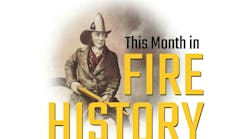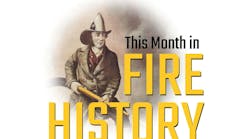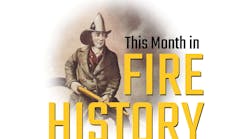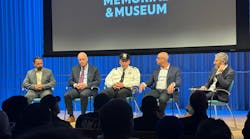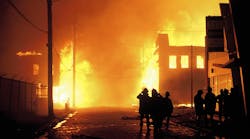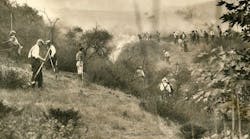WASHINGTON - As Congress and the nation prepare to mark the anniversary of 9/11, U.S. Reps. Bob Etheridge (D-NC) and Steny Hoyer (D-MD) today introduced the Hometown Heroes Survivor Benefit Act. This legislation is rooted in North Carolina, born out of a letter written to Etheridge by a concerned constituent. The legislation would extend the current Public Safety Officer Benefits Program to public safety officers, including police officers, firefighters, EMS workers and other first responders, who die of heart attacks or strokes while on duty. Heart attacks and strokes represent a significant risk among public safety officers, accounting for nearly half of firefighter deaths each year. "In North Carolina, we know that our hometown heroes, our firefighters, our police officers, our first responders, keep our families and our communities safe," Etheridge said. "This legislation is just one small step towards making sure that our first responders and their families are taken care of for the courageous and dangerous work they do every day. I am proud that we are introducing this legislation less than a week before the anniversary of 9/11 in honor and memory of all the firefighters, police officers and first responders who lost their lives." Mike Williams of Bunnlevel, who works in the Office of State Fire Marshal Jim Long in the N.C. Department of Insurance as a Fire/Rescue Training Specialist and as the Assistant Chief of Flat Branch Volunteer Fire Department, wrote to Etheridge and spurred the legislation. "I wrote to Congressman Etheridge because I was frustrated by a system that let my friends and colleagues down time and again," Williams said. "These firefighters give their time and energy, and sometimes their lives, for our safety. Their families deserve this benefit for their many sacrifices." The Public Safety Officers Benefits Program currently provides financial assistance to families of public safety officers (police, fire and EMS) killed in the line of duty, as well as to officers permanently disabled while on the job. The death benefit is payable to the survivors of a public safety officer who "has died as the direct and proximate result of a personal injury sustained in the line of duty." Unfortunately, in almost every incidence of death by heart attack or stroke, it is ruled that the heart attack or stroke was not a direct result of an injury sustained in the line of duty and the family receives no benefits even though the deaths were clearly triggered by the rigors of the job. The Etheridge-Hoyer bill would correct that deficiency in the law. "September 11th has served as a vivid reminder of the sacrifices made by our public safety officers every day," said Rep. Hoyer (D-MD). "This legislation says we do recognize that stress and strain pose a serious threat to our police and firefighters, and that should they succumb to them while serving their communities, we promise to provide for their families during their time of greatest need." The following is a brief legislative summary of the Hometown Heroes Survivor Benefit Act of 2002. The Public Safety Officers Benefit Under Current Law:
- Provides financial assistance to the survivors of public safety officers (including police officers, firefighters and EMS workers) killed in the line of duty, as well as to officers permanently disabled while on the job.
- Assists the survivors of a public safety officer who "has died as the direct and proximate result of a personal injury sustained in the line of duty" with a one-time death benefit payment (currently about $250,000), which is administered by the U.S. Department of Justice.
- Makes it difficult for families of public safety officers who die of a heart attack or stroke to qualify for benefits. Surviving families must go to great lengths to overcome the burden of proof and prove that the heart attack or stroke was "direct and proximate result of a personal injury sustained in the line of duty" to do so.
- Allows the families of public safety officers who have died from a heart attack or stroke while on duty to receive the public safety officer benefit.
- Provides this benefit to firefighters who die within 24 hours of "participating in a training exercise or responding to an emergency situation."
- Presumes that a public safety officer who suffers a fatal heart attack or stroke, while on duty or within the 24-hour timeline, died as the direct and proximate result of a personal injury sustained in the line of duty.
- Costs approximately $13 million per year.
